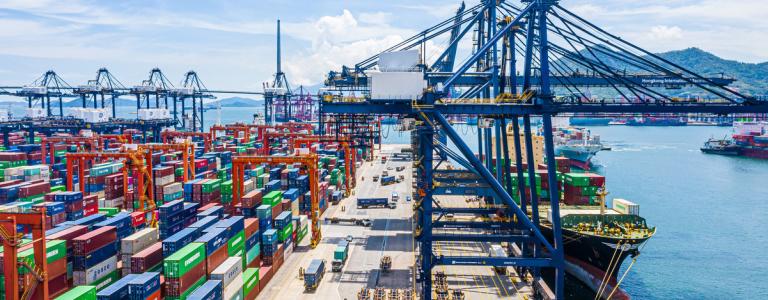Trade and Climate Change
Trade policy has a central role to play in supporting efforts to mitigate climate change and in helping communities adapt to the realities of the changing climate. Defining this role in different contexts requires a deep understanding of the range of policy priorities governments seek to balance, and the economic implications of different choices.
IISD’s work on trade and climate change provides analysis and advice to help define the role of trade policy by leveraging the organization’s expertise in three interlinked topics: the economic and policy choices in the energy transition needed for climate change mitigation; climate change adaptation planning and climate resilience; and the design of trade policy and trade agreements.
Our work provides governments and other stakeholders with practical, evidence-based analysis of policy options and ways they can be achieved, including through international cooperation.
Latest Publications

Leveraging Trade to Support Climate Adaptation in Developing Countries
This paper aims to support trade negotiators in leveraging trade for climate change adaptation and to explore the critical role National Adaptation Plan (NAP) processes can play in this regard.

Impacts of Climate Change Policies on Developing Country Export Markets
This report reviews existing net-zero commitments and circular economy plans and assesses the potential impact of core components of such policies on developing country exports.

How Can Trade Policy Maximize Benefits From Clean Energy Investment?
This paper looks at the role of trade policy in fostering the domestic production of renewable energy components in developing countries with a particular focus on wind and solar energy.
Webinars
Trade and Climate Change: How can trade policy maximize developing countries' benefits from a clean energy transition?
The first of two sessions, this event will assess how trade policy can incentivize clean energy production in developing countries.
Trade and Climate Change Mitigation and Adaptation: Implications for developing countries
The second of two sessions, this event will look at the impact of climate change mitigation and adaptation policies on developing country exports of goods and services.
Latest Blog Posts
Net-Zero Should Not Be a Net Loss for Low-Income Economies
As countries make the transition towards net-zero economies, what do these policies mean for international trade?
Can Trade in Electric Vehicle Raw Materials Create Development Opportunities?
As demand grows for electric vehicles, there are valuable lessons to learn from Chile and the Democratic Republic of the Congo.
How Can Trade Maximize Gains From Clean Energy Investment in Developing Countries?
As governments increasingly turn to trade policy to support the renewable energy transition, they also need to encourage the production of key components at home.
Latest
You might also be interested in
Climate Change, the Natural Environment, and the Green Transition
IISD is driving policy change at the intersection of trade, climate change, and the natural environment.
Fisheries Subsidies
IISD works to support the WTO negotiations to end harmful fisheries subsidies.
IISD Next: Campus Workshop Series on Sustainability
A free workshop series on sustainability to educate and empower youth worldwide with tools on policy, sustainable development goals, and more.
Normalizing No New Fossil Fuels
There is no room for new fossil fuel projects under a 1.5°C global warming limit. New research explores how countries and the public can establish “no new fossil fuels” as a benchmark for climate leadership.






